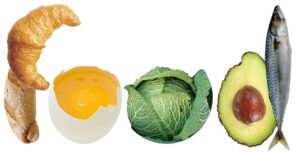15 nutrients and why they are important
Table of Contents
-
Introduction to Essential Nutrients (#introduction-to-essential-nutrients)
-
Macronutrients: The Foundation of Energy (#macronutrients-the-foundation-of-energy)
-
Carbohydrates (#carbohydrates)
-
Proteins (#proteins)
-
Fats (#fats)
-
-
Micronutrients: Small but Mighty (#micronutrients-small-but-mighty)
-
Vitamin A (#vitamin-a)
-
Vitamin B Complex (#vitamin-b-complex)
-
Vitamin C (#vitamin-c)
-
Vitamin D (#vitamin-d)
-
Vitamin E (#vitamin-e)
-
Vitamin K (#vitamin-k)
-
Calcium (#calcium)
-
Iron (#iron)
-
Magnesium (#magnesium)
-
Potassium (#potassium)
-
Zinc (#zinc)
-
-
Water: The Unsung Hero (#water-the-unsung-hero)
-
Why Nutrient Balance Matters (#why-nutrient-balance-matters)
-
Conclusion (#conclusion)

Introduction to Essential Nutrients
Nutrients are the building blocks of life, fueling everything from your morning workout to your late-night brainstorming sessions. Specifically, 15 nutrients and why they are important should be on every health-conscious individual’s radar. These essential compounds—macronutrients, micronutrients, and water—work together to keep your body functioning optimally. Whether you’re on a wellness journey or simply aiming to feel your best, understanding these nutrients is a game-changer.
In this article, we’ll explore 15 critical nutrients, their roles in your body, and why deficiencies can derail your health. Let’s dive into the science of nutrition and unlock the secrets to a vibrant life.
Macronutrients: The Foundation of Energy
Macronutrients provide the energy your body needs to thrive. They include carbohydrates, proteins, and fats—each with a unique purpose.
Carbohydrates
Carbohydrates are your body’s primary energy source. Found in foods like whole grains, fruits, and vegetables, they break down into glucose to power your cells. A diet lacking carbs can lead to fatigue and poor concentration.
Proteins
Proteins are the building blocks of muscles, tissues, and enzymes. Sources like lean meats, beans, and tofu supply amino acids essential for repair and growth. Without enough protein, your immune system and muscle health suffer.
Source: National Institutes of Health
Fats
Fats get a bad rap, but healthy fats—like those in avocados, nuts, and olive oil—are vital for brain function and hormone production. They also help absorb fat-soluble vitamins. Skimp on fats, and you risk energy dips and nutrient deficiencies.
Source: American Heart Association
Micronutrients: Small but Mighty
Micronutrients, including vitamins and minerals, are needed in smaller amounts but pack a powerful punch for health.
Vitamin A
Vitamin A supports vision, skin health, and immunity. Found in carrots, sweet potatoes, and spinach, it’s a must for clear eyesight and fighting infections.
Source: Mayo Clinic
Vitamin B Complex
The B vitamins (B1, B2, B3, B5, B6, B7, B9, B12) are energy boosters. They convert food into fuel and support brain health. Find them in eggs, whole grains, and leafy greens.
Source: Healthline
Vitamin C
Vitamin C, abundant in citrus fruits and bell peppers, is an antioxidant that promotes collagen production and immune defense. A deficiency can lead to scurvy or slow wound healing.
Source: Cleveland Clinic
Vitamin D
Known as the “sunshine vitamin,” Vitamin D strengthens bones by aiding calcium absorption. Get it from sunlight, fatty fish, or fortified milk. Low levels increase risks of osteoporosis.
Source: National Osteoporosis Foundation
Vitamin E
Vitamin E protects cells from damage as an antioxidant. Nuts, seeds, and vegetable oils are rich sources. It’s key for skin and heart health.
Source: WebMD
Vitamin K
Vitamin K ensures proper blood clotting and bone strength. Leafy greens like kale and broccoli are top sources. Without it, you could face excessive bleeding or weak bones.
Source: Medical News Today
Calcium
Calcium builds strong bones and teeth while supporting muscle and nerve function. Dairy, fortified plant milk, and sardines are excellent choices. Too little can lead to brittle bones.
Source: National Institutes of Health
Iron
Iron carries oxygen in your blood, preventing anemia. Red meat, lentils, and spinach are iron-rich. A deficiency causes fatigue and weakness.
Source: World Health Organization
Magnesium
Magnesium regulates muscle relaxation, energy production, and heart rhythm. Find it in almonds, bananas, and dark chocolate. Low levels may trigger cramps or stress.
Source: Healthline
Potassium
Potassium balances fluids and supports heart and muscle function. Bananas, potatoes, and oranges are packed with it. A shortage can cause high blood pressure or irregular heartbeats.
Source: American Heart Association
Zinc
Zinc boosts immunity and aids wound healing. Oysters, beef, and pumpkin seeds deliver this mineral. Insufficient zinc weakens your defenses against illness.
Source: Medical News Today
Water: The Unsung Hero
Water isn’t just a nutrient—it’s life itself. Making up about 60% of your body, it regulates temperature, aids digestion, and flushes toxins. Dehydration leads to headaches, dry skin, and sluggishness. Aim for 8–10 cups daily from water-rich foods (like watermelon) and drinks.
Source: Mayo Clinic
Why Nutrient Balance Matters
Focusing on 15 nutrients and why they are important reveals a critical truth: balance is key. Too much or too little of any nutrient disrupts your body’s harmony. For example, excess Vitamin A can harm your liver, while insufficient iron starves your cells of oxygen. A varied diet ensures you hit the sweet spot.
Nutrition experts recommend whole foods over supplements when possible. Why? Foods deliver nutrients in synergy—think of the fiber in an apple working alongside its Vitamin C. Supplements can help, but they’re no substitute for nature’s bounty.
Source: Harvard Health